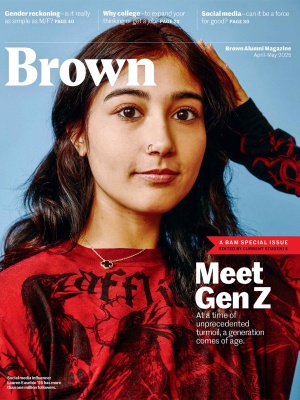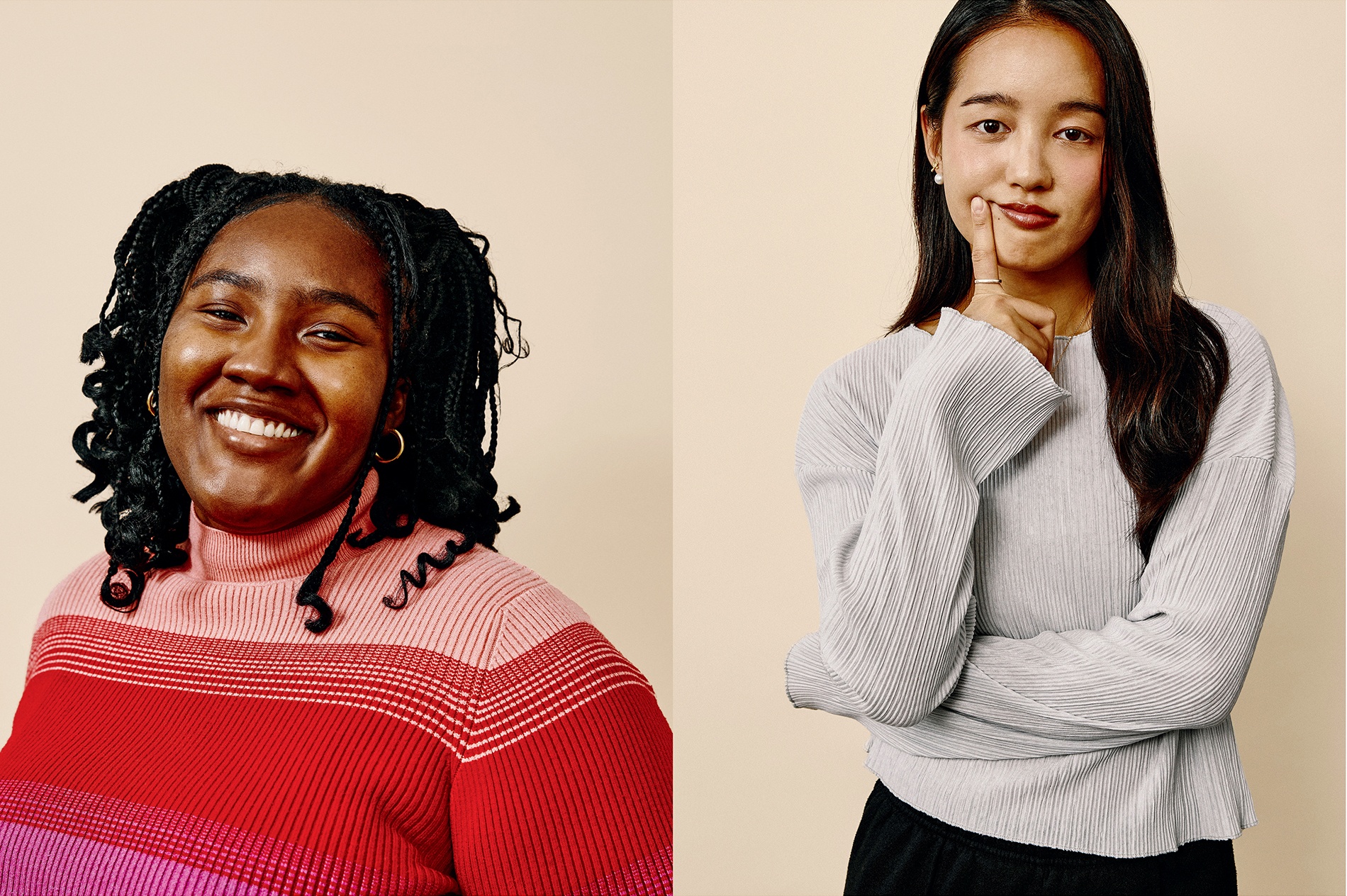
Influence.
Big brands chase after social media content creators because they can change the way other people think. Meet six current students and Gen-Z alums who are documenting their work, their expertise, even their day-to-day lives, for a global audience.
Admit it: You think of an “influencer” as a certain character that makes money promoting brands and producing social media content of debatable societal value. If you’re older, you probably think of it as a Gen Z thing; if you’re Gen Z, you probably agree. And that’s fair. The MrBeasts and Charli D’Amelios of our world easily fall into that definition. What’s not as evident is that some of these influencers are college students and a few are roaming Brown’s campus.
To be clear, most don’t identify with the profession (they have the same conception of it as we all do). Instead they’re “content creators,” spending their precious hours shooting, editing, and posting videos on YouTube, TikTok, and Instagram. Their influence is undeniable, though, with their audience sizes ranging from a couple thousand followers (mind you, that’s basically Brown’s campus population) to well over a million (like Lauren Eusebio ’25). They’re not only getting recognized on campus; they’re inspiring students to attend Brown. In some ways, they’re the University’s front-line representatives.
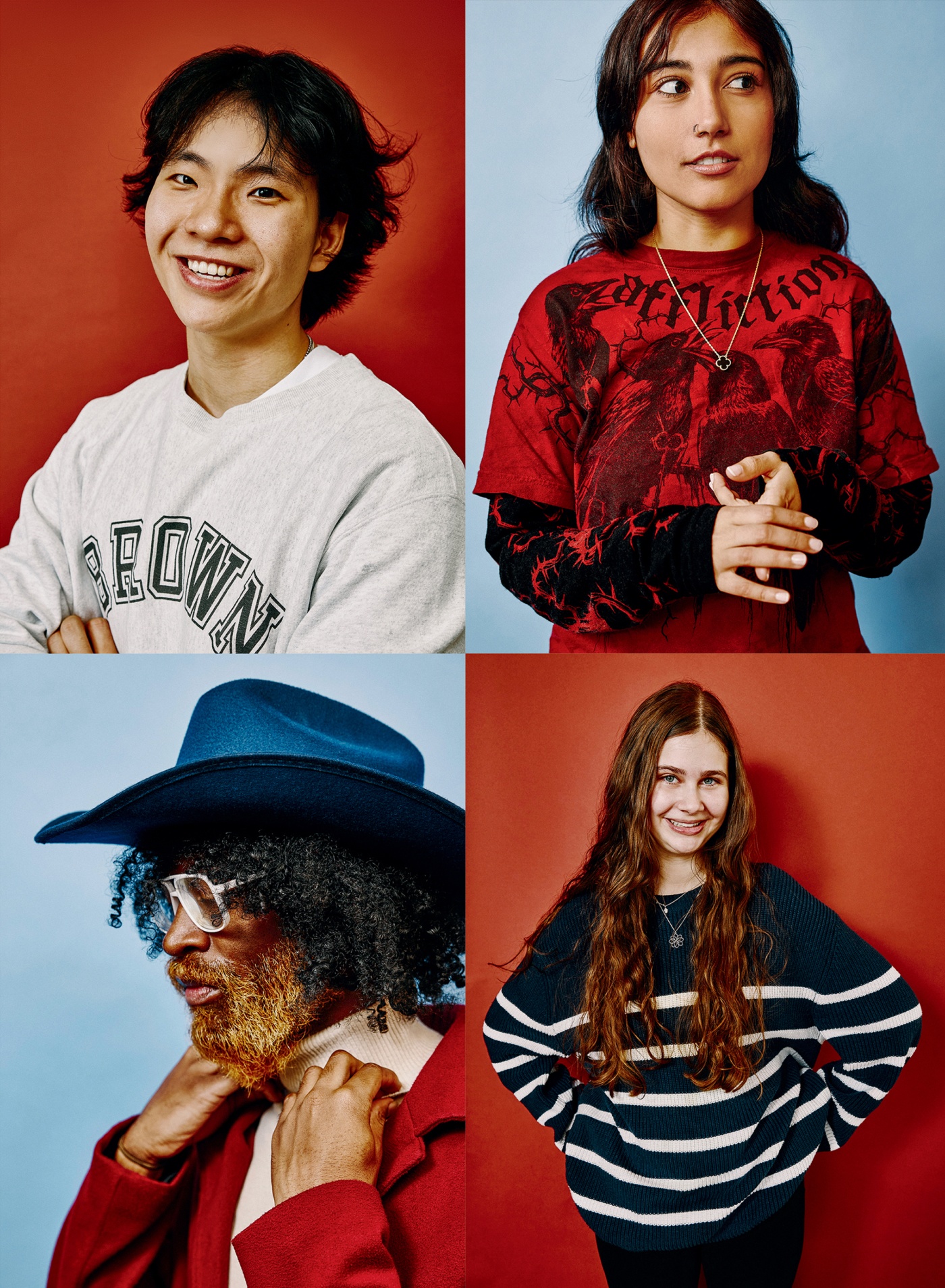
So why do it? Some make great money; most don’t. But outside of profit, these creators have myriad motivations for maintaining their platforms: to attain future career opportunities; to have an emotional outlet; yes, sometimes to gain validation but even more often to foster a sense of connection. And in return, they offer their audiences hard-to-find expertise, guidance, and inspiration; a hearty laugh; and again, connection—connection that, as some of them would argue, can make just as tangible of an impact on their followers’ lives as
“real-life” relationships.
The following Brown content creators, including current students and recent alumni, span a wide breadth of content types and goals, just like influencers at large. And like social media at large, you can look away from their work, but looking away doesn’t stop their influence from going on without you.
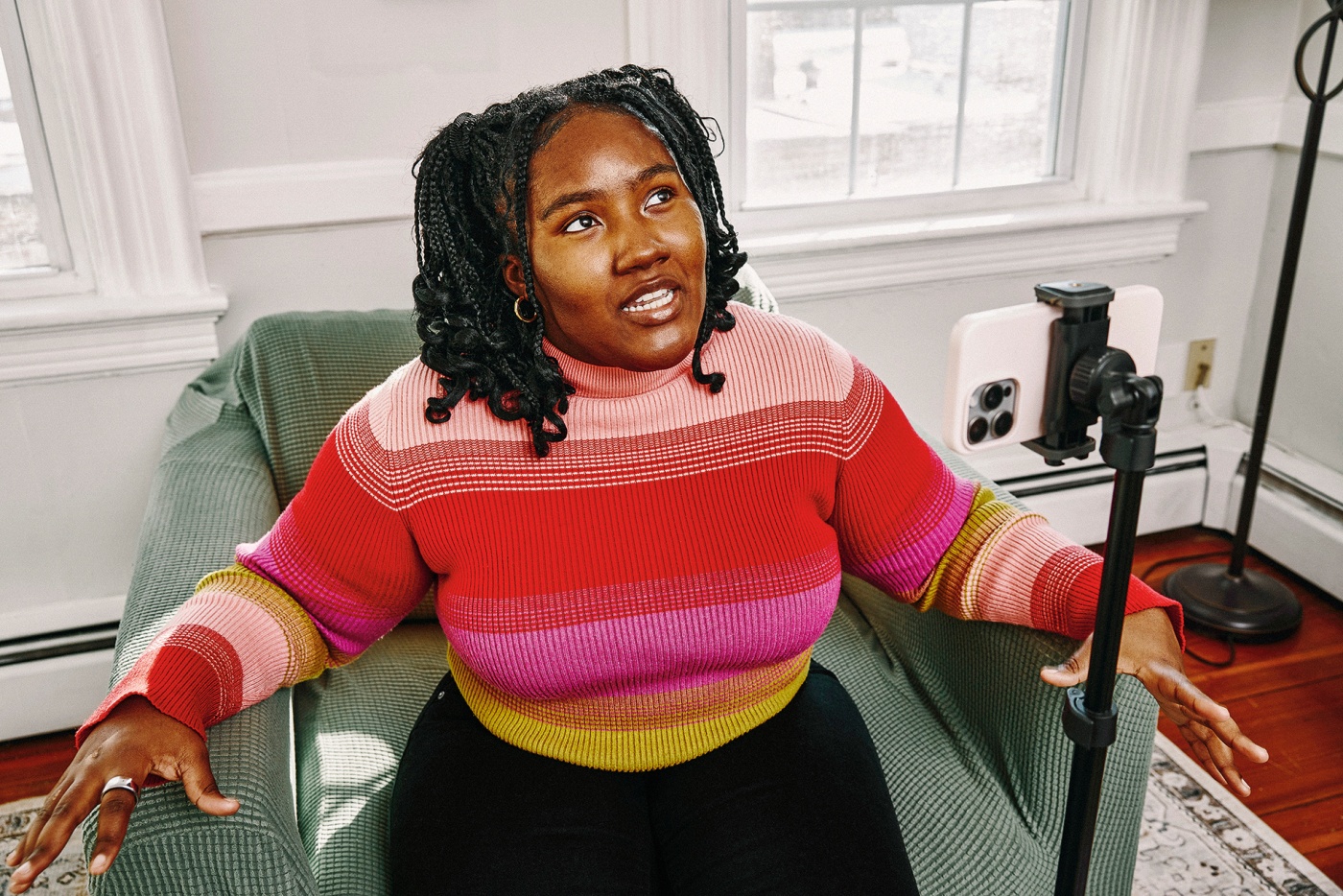
The Adviser
Georga-Kay Whyte ’23 AM, ’28 PhD
Main accounts: @scholasticbabe on TikTok and YouTube
A third-year PhD student in the history department, Whyte began to document her life on YouTube as a hobby while she was an undergraduate at Agnes Scott College. She became more serious about video production, including expanding to TikTok, after watching graduate student content creators to learn about the PhD application process. Whyte’s vlogs and advice videos target students from underrepresented backgrounds, but she wonders how her social media presence may be viewed by her colleagues in academia.
“ Even now, I haven’t explicitly talked to anybody in my academic circle about my YouTube channel. It isn’t a huge center of my work because so much of my work is just research, but I want to get more confident in owning it because I sometimes feel like in more traditional academic spheres, some people look down on those who do social media. I’ve even seen people comment—not on my own personal channels—that if you have time to do it, then you’re not taking your work seriously enough. In this ivory tower–type world, there’s such an emphasis on rigor and academic publishing. I just don’t feel like those things and social media are mutually exclusive.
“I really do feel like there needs to be more representation. I didn’t know what a PhD would look like. I never saw anyone in my family do it. I never saw anyone that I was close to do it. So if you don’t have that, how do you make that decision to go forward? I feel like it’s a part of my practice for other marginalized students to see themselves and think, ‘Wait, I can do that.’ I constantly correspond with viewers over email or Zoom—people who are first-gen and have no one else to talk to. Even though I don’t have a huge presence, the presence that I do have, it’s so meaningful to me.”
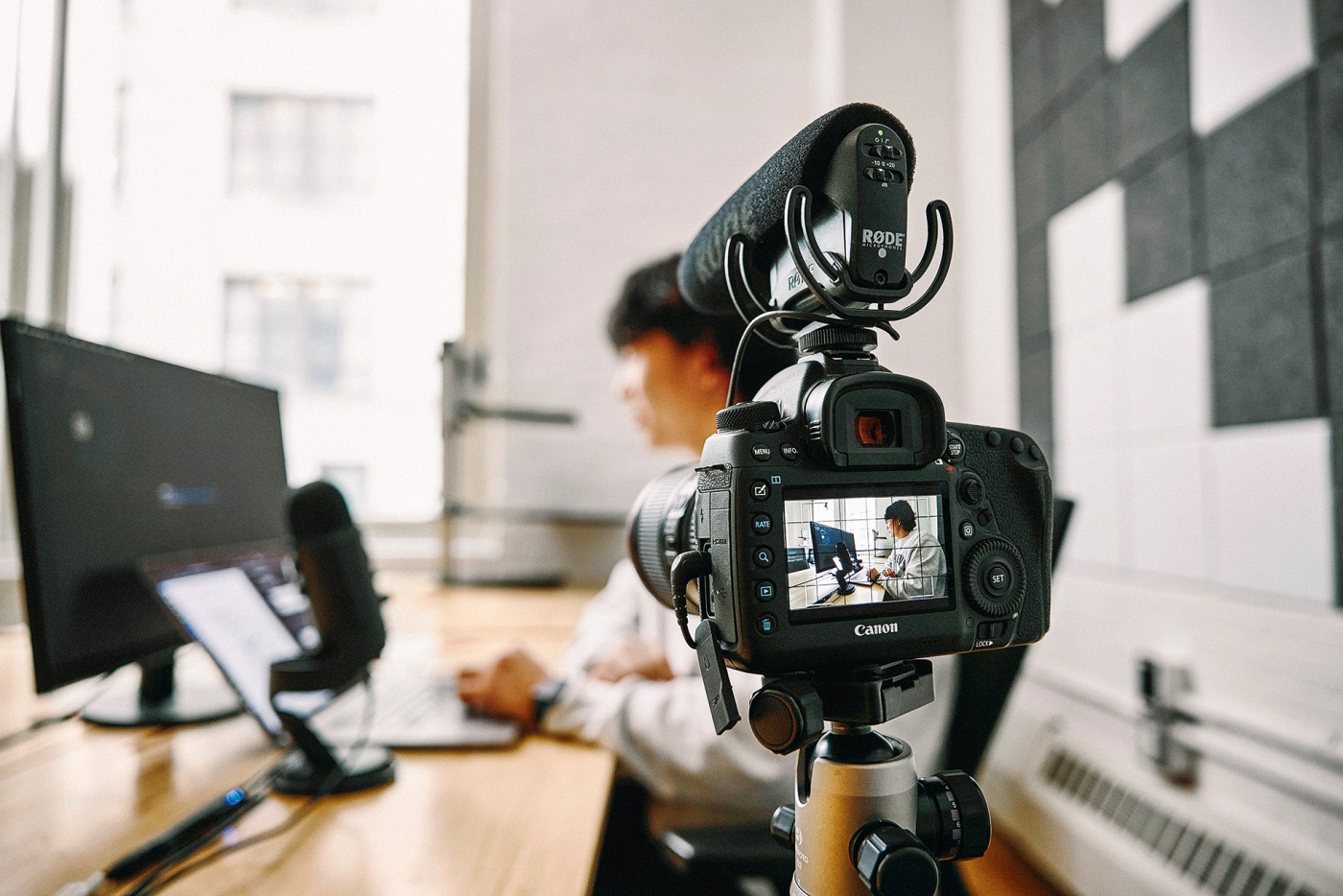
The Documentarian
Jae Ahn ’24
Main accounts: @keys on YouTube
Ahn began making videos in the sixth grade but he only began featuring himself in front of the camera and posting them online while attending Brown. Despite his camera shyness, his vlog-style YouTube videos have followed his journey from life on campus to working as an analyst at a credit hedge fund in New York. He focuses on the cinematography of his filmmaking but also recognizes the emotional impact of his work.
“ I always tried to get into journaling, but I frankly didn’t like writing things out, so I started making videos with my friends—skiing videos or going on trips—and that’s how it all started. Eventually I decided to make a couple day-in-the-life videos because, maybe in 10, 15, 20 years, I could show them to my kids and grandkids. Suddenly I was gaining thousands of subscribers a day.
“It’s a public journal for me. It’s a video documentary on myself where I talk about my candid thoughts and feelings. And those thoughts and feelings tend to cover topics like burnout at Brown or mental health or loneliness. These topics aren’t things that people honestly talk about much. I’ve had friends actually reach out to me after watching my videos, saying, ‘Hey, I had no idea you were going through these things.’
“It’s quite emotionally taxing. Let’s say I filmed a video three months ago and I’m editing it now, but the topic of that video was about how lonely I felt at that moment. When I’m writing the script and doing the voiceover, I have to engender those feelings again and remind myself how I felt. It’s stressful posting videos sometimes, but nothing good really comes easy. I love creating my art and putting it out there, and I actually can feel a lot of peace because I feel like I’m finally unwrapping whatever I’m struggling with and actually tackling that issue rather than just kind of letting it marinate inside of me.”
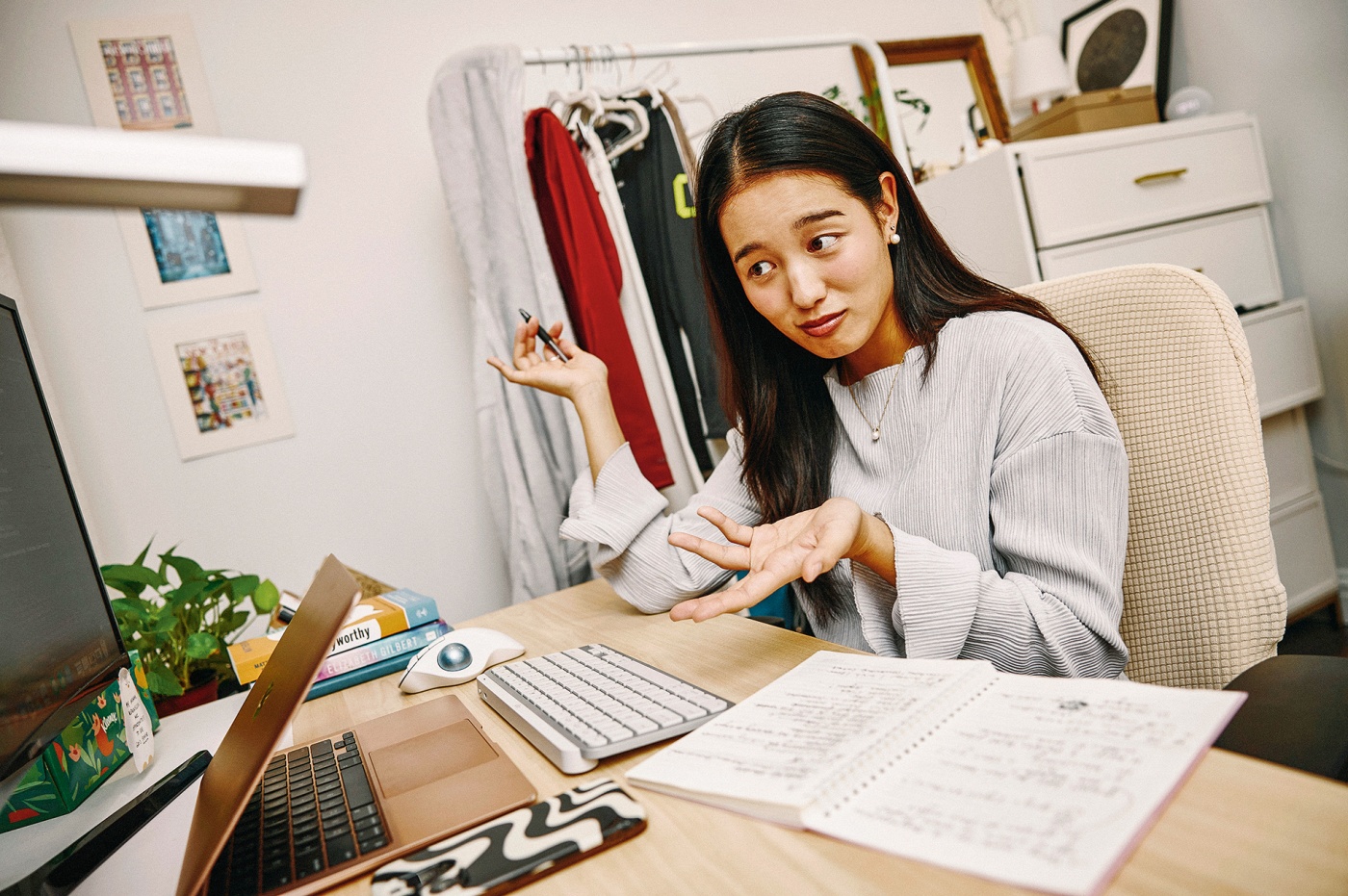
The Director
Kaiti Yoo ’22
Main accounts: @KaitiYoo on Instagram and YouTube and @ktustudios on TikTok
Yoo started a popular YouTube channel during the Covid-19 pandemic but went on a six-month hiatus after moving to New York after graduation. She has since expanded into filmmaking, and her self-written/directed digital shorts series, Two Good People—which follows the social and emotional aftermath of a breakup between two young New Yorkers—recently debuted on her various social media channels.
“Ever since I was a child, I would tell my dad, ‘I wanna be famous,’ and he’d sit me down and tell me, ‘You need to contribute something to the world to be famous, okay?’ So when I started YouTube, I was kind of focused on becoming visible. It was not motivated from the best place at first. But I think a lot of adulthood is going back to what you did for fun as a child, and in my free time I was always filming my friends, editing movie trailers, taking pictures. My subconscious was very drawn to content creation because I already enjoyed this visual fabric of telling stories, conflated with the idea that maybe this was a way to ‘make it.’
“It felt normal to be very vulnerable in my vlogs because, coming out of Covid, people were flocking to the internet for connection. But then I moved to New York City and I entered a pretty rough time of my life, both professionally and personally. It got to a point where my mental health was so low that I had to take six months off from working. I realized that I’d been placing my identity in the amount of people that I could get to connect to me and validate me, and I feel like vulnerability was almost this tool that I leaned on to get some sense of worth.
“When I graduated, I planned on being an influencer for as long as possible, but in the past year, because of the opportunities and skills that YouTube has given me, I’ve been able to refine what I want to do. I’m pivoting much more into filmmaking and directing, which still entails vulnerability and storytelling, but in a different way. Going on this wild creative ride of YouTube showed me you can bet on yourself and you can take risks.”
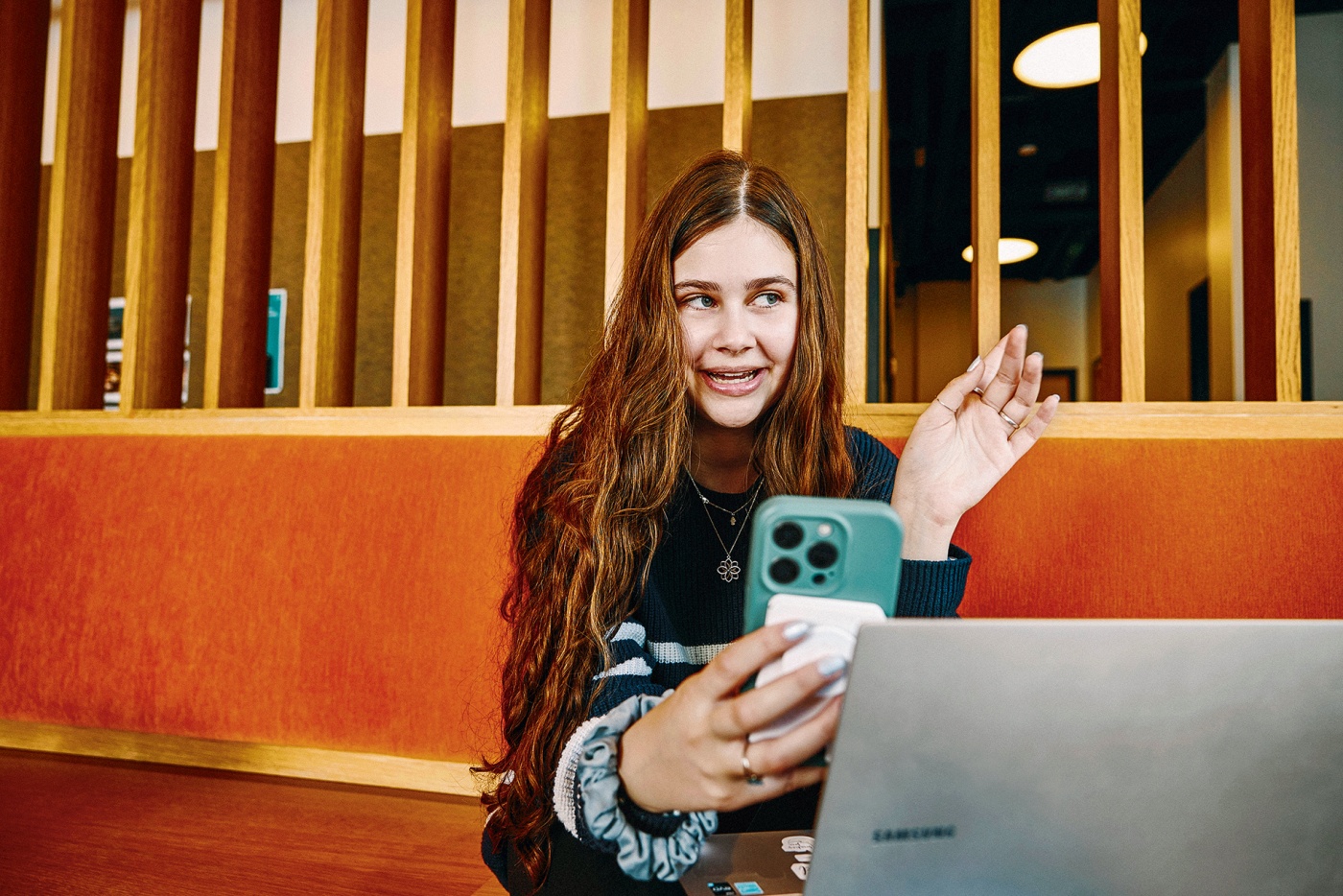
The Edutainer
Sarah Frank ’25
Main accounts: @frankadvice and @sarah.frank on TikTok
Frank initially posted on TikTok to promote Simple Studies, a nonprofit she started while attending a Title I public high school in Tampa, Florida, to combat educational inequity by providing free student resources such as study guides and college application tips. Today, her main TikTok account dispenses college advice and documents her life at Brown for nearly 100,000 followers.
“I attended a lot of admission sessions, a lot of office hours with admissions officers, a lot of webinars at all the schools that I was applying to. I feel like I had amassed so much information, and what was the harm in disseminating it? And once I got into Brown and the other schools that I had applied to, I think I gained credibility, so it sort of took off from there. I never intended to be an ‘influencer.’
“My content is very college application and college life specific, so a lot of my audience is at Brown. The first month of school is my favorite time of year because people will recognize me from my videos, and it is the sweetest, most heartwarming thing when they come up to me and say that they recognize me from TikTok, or that they even discovered Brown through me.
“One thing I’ve had to learn the hard way is separating constructive criticism from hate comments. If you’re putting yourself out on the internet, you are in some way allowing people to comment on you. And that doesn’t excuse people being mean, but it does mean that to some extent, you have to be ready for it.”
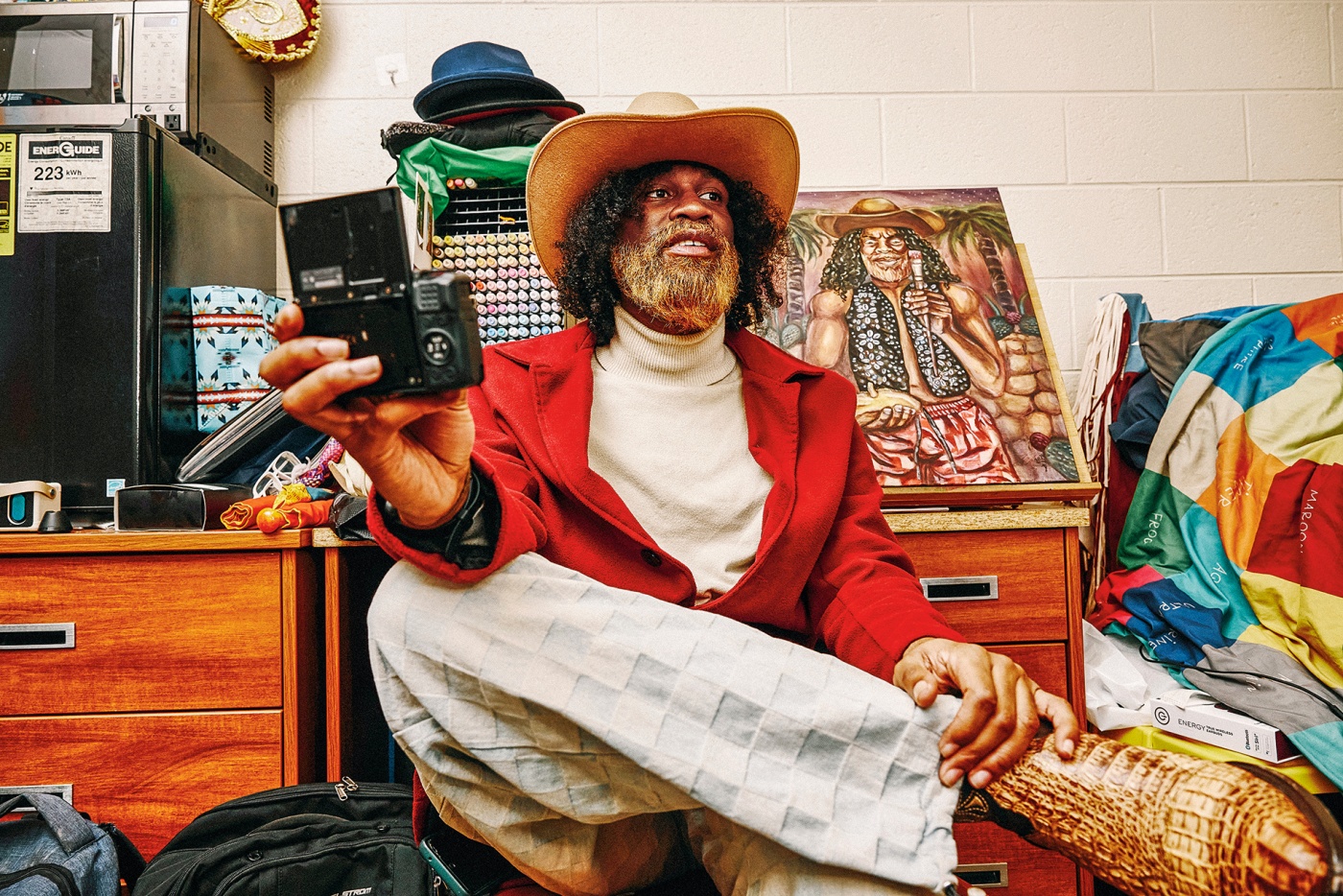
The Eccentric
Yomi Adegbile ’26
Main accounts: @its_yomi on Instagram and @ItsYomi on YouTube
Adegbile is a Brown|RISD dual degree student concentrating in sociocultural anthropology and illustration. He started posting speed-drawing videos on YouTube in eighth grade and has since produced various vlogs about his time on Brown’s campus and abroad. He approaches his most popular platform, Instagram, quite differently, producing playful short-form videos in which he sings while showing off his paintings.
“ I enjoy making content, but eventually I want this to be a side income. Social media is the entrance to a lot of different areas and fields and gives you a lot of opportunities. For example, through social media, I got a commission this past year from a Brown alum, so I think it can be really beneficial for my art. And I have this silly plan in the back of my head that I’ll be this actor-singer. Obviously, that’s like everyone’s dream, but I’ve watched a lot of content creators who I follow suddenly start acting in shows.
“It’s important to have a good digital footprint and to inspire people. You never know, when you put something out there, how it’s going to be interpreted. There have been videos that I’ve put out where I wouldn’t agree with what I said or did in that video anymore, so I take them down. With social media, if someone talks, you’re inclined to listen to them and take them as an authority figure, so with that comes responsibility.”
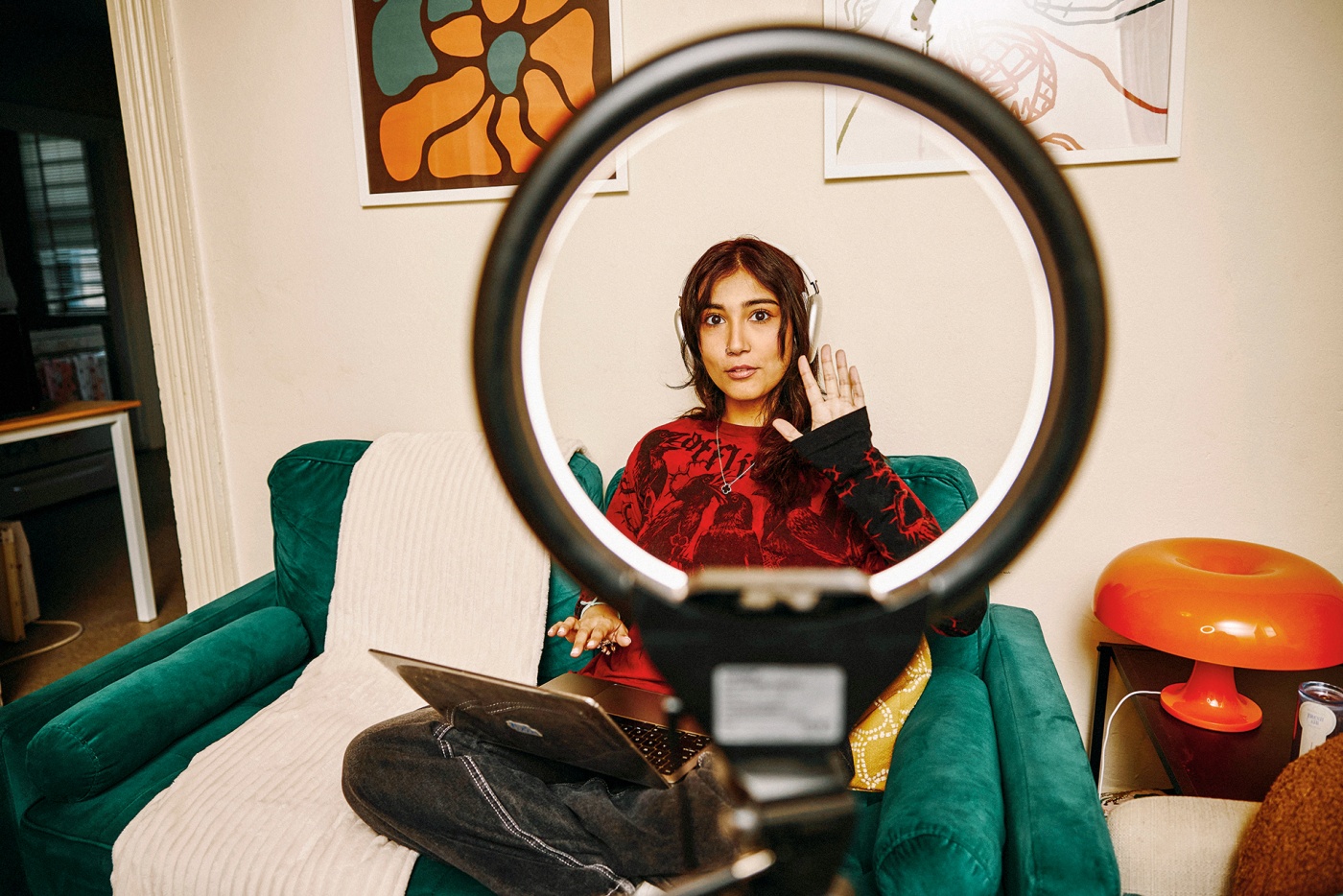
The Professional
Lauren Eusebio ’25
Main accounts: @candacevfx on TikTok, @emowhofromwhoville and @lolabugxd on Instagram, @emowhofromwhoville on YouTube
Eusebio has accrued millions of followers with her fan edits—a style of short-form video that applies music and video effects to spliced clips of pop-culture phenomena. While she first became popular on Instagram for posting fan edits of the TV show Riverdale, she built a much larger following on YouTube and TikTok for her video editing tutorials and a popular video series in which she creates anonymous TikTok accounts dedicated to fan edits of a trending celebrity or topic and documents how these accounts grow across a week.
“I spent my first two years at Brown doing pre-med neuroscience, but it was so much work that I would go months without posting on YouTube. I’m lucky my channel survived. It was honestly a bad time in my life because I was figuring out what I wanted to do for work, and in trying to work toward those goals, I felt like a failure in this other thing that I had made into my whole brand.
“I ended up realizing by my sophomore year that I actually didn’t want to go to med school. Once I pivoted to behavioral decision sciences, I felt like my classes were more enjoyable. I had more free time to do what I wanted to do and going into my junior year, I took YouTube a lot more seriously. That’s when I got my management, and after getting a manager, I don’t have the luxury of not having a schedule. Since August 2023, there hasn’t been a single month where I haven’t done at least one video with a brand deal. That structure has made me so much less stressed because I don’t need to know exactly what I’m doing post-grad, but I do know I have something planned.
“Every other creator I’ve spoken to says the same thing: When we try the hardest to appeal to people, it always falls flat. If you want to stand out and create your own niche, you have to do the exact opposite of following all the trends. It’s always those moments of just being creative, having fun, doing stuff that resonates with you that always ends up being the most successful.”
Ethan Pan ’22 is a Brooklyn-based food writer and the digital marketing coordinator at the James Beard Foundation. His writing has appeared in publications such as Outside, Philadelphia magazine, and 5280.

